![Largest Gaming Companies by Market Cap: Japan [2024] Largest Gaming Companies by Market Cap: Japan [2024]](https://data40.com/wp-content/uploads/2024/04/Header-2-1.jpg)
There is an exploration of the titans of the gaming industry, focusing on the significant contributions and dynamic presence of Japanese companies. From pioneering early innovations to dominating the global market today, Japanese firms have played a pivotal role in shaping the landscape of video gaming. This article delves into the histories, strategic advancements, and market impacts of leading Japanese game developers and publishers.In 2023, Japan became the third oldest in the world in terms of revenue in the gaming industry. The earnings amounted to $ 20 billion. According to statistics, mobile games made up a significant part of the income.It follows from this that the games annually make a significant contribution to the country’s economy.
| Company | CEO | Established | Headquarters | Employees | Revenue |
|---|---|---|---|---|---|
| | Kenichiro Yoshida | May 7, 1946 | Kōnan, Minato, Tokyo, Japan | 113,000 (2023) | $88.97 B |
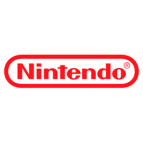 | Shuntaro Furukawa | September 23, 1889 | 11–1 Kamitoba Hokodatecho, Minami-ku, Kyoto, Japan | 7,317 (2023) | $11.97 B |
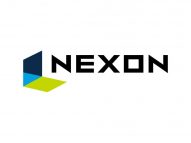 | Junghun Lee | December 26, 1994 | Minato-ku, Tokyo, Japan | 7,067 | $2.98 B |
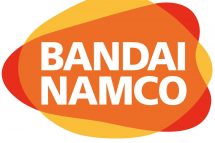 | Mitsuaki Taguchi | September 29, 2005 | Sumitomo Fudosan Mita Building, Minato, Tokyo, Japan | 10,562 (2023) | $7.17 B |
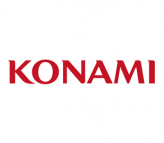 | Kagemasa Kozuki | March 21, 1969 | Ginza, Chūō, Tokyo, Japan | 9,766 | $2.40 B |
 | Kenzo Tsujimoto | May 30, 1979 | Chūō-ku, Osaka, Japan | 3,332 (2023) | $1.07 B |
 | Takashi Kiryu | April 1, 2003 | Shinjuku Eastside Square, Shinjuku, Tokyo, Japan | 4,712 (2023) | $2.43 B |
 | Susumu Fujita | March 18, 1998 | Abema Towers, 150-0042 Shibuya, Tokyo, Japan | 6,340 (2022) | $5.26 B |
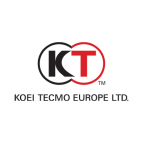 | Yōichi Erikawa | April 1, 2009 | Minatomirai, Yokohama, Japan | 2,384 | $0.63 B |
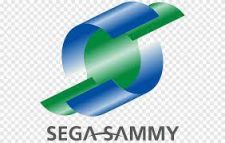 | Haruki Satomi | October 1, 2004 | Sumitomo Fudosan Osaki Garden Tower, Tokyo, Japan | 7,535 | $3.29 B |
History of Japanese Gaming
The history of Japanese gaming is a fascinating journey that traces back to the early 1970s, when companies like Nintendo began to transition from producing playing cards to engaging in the burgeoning electronic games market. The 1990s saw Japan solidifying its position as a leader in the gaming industry. Sony’s entry into the market with the PlayStation in 1994 further intensified competition and innovation. The PlayStation and its successors brought advanced graphics and sound, a wide variety of games, and new gaming experiences to a growing audience, further cementing gaming as a mainstream form of entertainment.
During this period, Japanese game developers continued to innovate, creating games that emphasized storytelling, character development, and immersive experiences. Japanese companies have been pioneers in creating trends such as the RPG genre, portable gaming devices, and gameplay mechanics that continue to influence game design globally. In recent years, Japan has adapted to changes in the global gaming market, including the rise of mobile and social gaming. Companies like Nintendo have innovated with hybrid consoles like the Nintendo Switch, which offers flexibility in gaming. Mobile gaming has also seen significant growth in Japan with titles like “Pokémon Go” and “Monster Strike” being extremely popular.
Market Cap – What Is It?
Market capitalization, commonly referred to as market cap, is a measure used to determine the total value of a company’s outstanding shares of stock. It is calculated by multiplying the current market price of one share by the total number of outstanding shares. This metric is crucial as it helps investors understand the company’s size, and it influences investment decisions by indicating the comparative worth of companies.
10 Japanese Video Game Companies
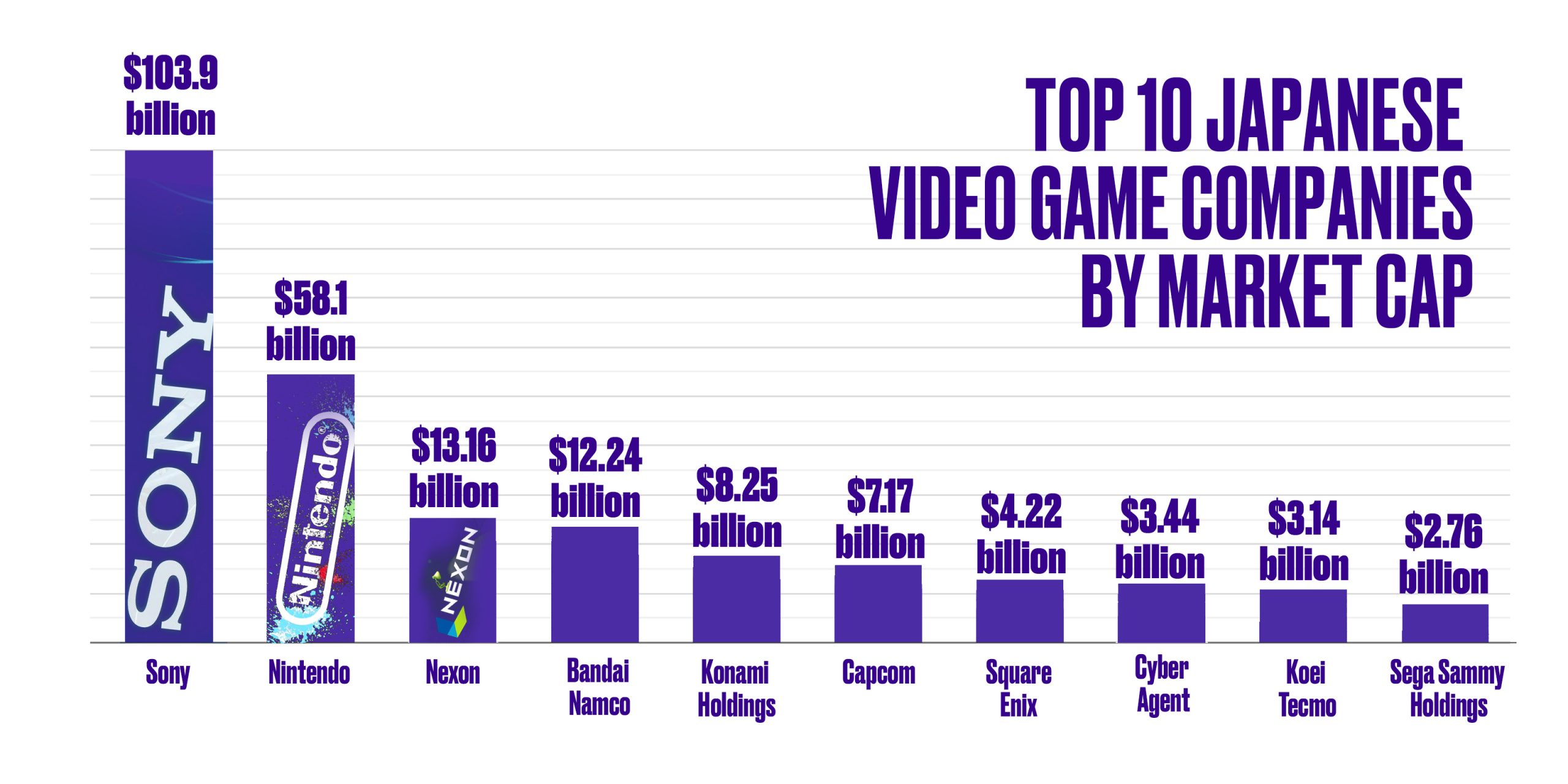
Sony
Market cap: $103.90 B
Founded: 1946
Sony Corporation, founded in Tokyo in 1946 by Masaru Ibuka and Akio Morita, began as a small electronics shop and has evolved into a global conglomerate with a vast influence across various industries including entertainment, technology, and gaming. Sony’s PlayStation brand, launched in 1994, has become a cornerstone of its entertainment division, revolutionizing the gaming industry with each new console release. The PlayStation series has been pivotal in shaping modern gaming, introducing iconic titles such as “Gran Turismo,” “God of War,” and “The Last of Us,” which have defined genres and set new standards for gaming narratives and technology.
Sony’s significant market cap is not only a testament to its strength in gaming but also to its broad diversification across different media and technology sectors. This includes its film division, Sony Pictures, and its music arm, Sony Music Entertainment, both of which are leaders in their respective fields and contribute to Sony’s overall revenue streams. Additionally, Sony’s innovations in consumer electronics—ranging from cameras and audio devices to televisions and mobile phones—have solidified its market position as a leading technology manufacturer.
The concept behind Sony’s success lies in its ability to innovate and adapt to changing market conditions. By consistently investing in research and development and exploring new markets, Sony has maintained its competitive edge and relevance in the rapidly evolving tech landscape. Its strategy of integrating hardware with exclusive software and digital content has created a robust ecosystem where each segment supports growth across the entire corporation.
Sony’s high market cap is also bolstered by its global brand recognition and reputation for quality, which have been cultivated over decades. The company’s ability to blend cutting-edge technology with compelling content allows it to offer unique and immersive experiences that appeal to a wide range of consumers around the world.
Nintendo
Market cap: $58.19 B
Founded: 1889
Founded in 1889 in Kyoto by Fusajiro Yamauchi, Nintendo started as a playing card company before pivoting to become one of the most influential video game companies globally. Nintendo’s approach has always been centered around innovative, accessible, and family-friendly gaming. It revolutionized the home gaming market with the introduction of the Nintendo Entertainment System (NES) in the 1980s and continued to lead innovation with the Game Boy, Wii, and recently the Nintendo Switch, which has redefined the possibilities of portable play.
Nintendo’s notable franchises, such as “Mario,” “The Legend of Zelda,” and “Pokémon,” have become cultural icons and driven the company’s profitability and high market cap. These games not only foster strong brand loyalty but also establish a broad, enduring fan base. Nintendo’s strategy of developing hardware that complements its game design philosophy—focused on user experience rather than just high-end specs—allows it to create unique gaming experiences that stand out in the competitive market.
The company’s market cap is a reflection of its ability to consistently generate hit titles and its mastery of game development and marketing. Nintendo’s expansion into mobile gaming, theme parks, and merchandise has further diversified its business and revenue sources, broadening its market impact and enhancing its corporate valuation.
Nintendo’s enduring success and high market cap are also due to its robust operational strategy, which includes tight control over its intellectual property and a strong emphasis on quality and innovation. This approach ensures that each new product not only meets consumer expectations but often exceeds them, creating a strong demand for Nintendo products worldwide.
Nexon
Market cap: $13.16 B
Founded: 1994
Founded in 1994 in Seoul, South Korea, by Kim Jung-ju, Nexon is a titan in the world of online free-to-play (F2P) games, with its headquarters now based in Tokyo, Japan. The company made its mark with “Nexus: The Kingdom of the Winds,” one of the first MMORPGs, which set the stage for a new era of online gaming. Nexon is perhaps best known for “MapleStory,” a groundbreaking side-scrolling MMORPG launched in 2003, which remains popular worldwide due to its engaging gameplay and community-focused features.
Nexon’s innovative approach to the F2P model, which includes microtransactions as a revenue strategy, has been widely adopted across the industry and is a primary reason for its high market cap. This model allows players free access to game worlds, with revenue generated from the sale of in-game items and upgrades. This approach not only broadens the player base but also creates a steady revenue stream as engaged players invest in game enhancements.
Moreover, Nexon has consistently expanded its portfolio with successful titles across various genres, including “Dungeon Fighter Online,” “Combat Arms,” and “KartRider,” which have collectively garnered millions of players globally. The company’s ability to innovate within the gaming space, particularly in creating games that cater to different cultural tastes and preferences, has allowed it to capture significant market share in Asia and make inroads into Western markets.
Nexon’s strategic acquisitions and partnerships have further bolstered its market position and expanded its influence beyond traditional gaming into blockchain and other advanced technologies. This forward-thinking approach ensures that Nexon remains at the forefront of the gaming industry, continually adapting to new trends and technologies, thereby sustaining its high market cap and industry relevance.
Bandai Namco
Market cap: $12.24 B
Founded: 2005
Bandai Namco was established in 2005 from the merger of two leading Japanese entertainment companies, Bandai and Namco. It has since become a significant force in the gaming and entertainment industry, especially known for leveraging popular culture in its products. Bandai Namco is behind some of the most successful multimedia franchises, such as “Pac-Man”, “Tekken”, and the “Dragon Ball” series, all of which encompass video games, toys, and other media products.
The company’s market cap is supported by its dual approach of game development and merchandise sales, which includes toys and hobby items. This strategy not only increases revenue streams but also reinforces brand engagement through cross-media marketing and product diversification. Bandai Namco’s expertise in creating and marketing products that appeal to both gamers and collectors significantly contributes to its high market cap.
Additionally, Bandai Namco’s involvement in video game development and publishing extends to mobile gaming, a rapidly growing sector that has enabled the company to reach a wider audience and tap into new revenue potentials.
Konami Holdings
Market cap: $8.25 B
Founded: 1969
Konami Holdings, established in 1969 in Osaka, Japan by Kagemasa Kozuki, initially focused on jukebox rental and repair before venturing into the arcade game industry in the 1970s. This shift marked the beginning of its influential role in video game development. Konami’s early arcade successes, notably “Frogger” and “Scramble,” captured global attention and laid the groundwork for its reputation for creativity and engaging gameplay. As the company moved into home console gaming in the 1980s, it introduced iconic franchises like “Metal Gear,” “Castlevania,” and “Contra,” demonstrating its ability to adapt to new platforms and excel in storytelling and technical prowess.
The 1990s and early 2000s were particularly significant for Konami, with the launch of the “Metal Gear Solid” series and “Silent Hill,” which redefined the stealth and horror genres, respectively. Additionally, the “Dance Dance Revolution” series expanded its reach by promoting physical activity through interactive dance, becoming a cultural phenomenon.
Konami has diversified its offerings beyond video games to include trading cards, anime, and health and fitness clubs in Japan. This strategic diversification has mitigated industry cyclicality risks and opened new revenue streams and demographic segments. Despite some controversy over shifting focus to mobile gaming and pachinko machines, this move reflects Konami’s adaptability and keen market trend awareness. The profitability of mobile gaming and the company’s content creation expertise ensure its ongoing relevance.
Konami Holdings’ enduring high market cap is a testament to its legacy and innovative adaptability in the entertainment industry. By leveraging its history and diverse entertainment portfolio, Konami remains a major player in the global market, continuously creating unique experiences that resonate across various media platforms.
Capcom
Market cap: $7.17 B
Founded: 1979
Capcom Co., Ltd., founded in 1979 in Osaka, Japan, quickly became a pivotal force in the gaming industry, famous for creating iconic video game franchises. The company began with the goal of making interactive electronic games, achieving global success with revolutionary titles like “Street Fighter” and “Resident Evil.” These games not only defined their respective genres but also elevated the standards of interactive gaming.
Introduced in 1987, the “Street Fighter” series revolutionized the fighting game genre with its innovative combo system and diverse cast of characters, fostering the growth of competitive gaming and helping to establish the esports scene. “Resident Evil,” launched in 1996, set new benchmarks for the survival horror genre, combining intense narratives with thrilling gameplay. The franchise’s deep stories and gameplay innovations, such as the inventory system and fixed camera angles, redefined horror gaming.
Capcom has also produced other major titles like “Monster Hunter,” “Devil May Cry,” and “Mega Man,” each adding to the company’s strong portfolio and financial health. Capcom’s high market cap is supported by effective intellectual property management, which includes rejuvenating beloved franchises and consistently delivering high-quality, engaging content. This strategy has maintained a loyal fan base and attracted new players, boosting the company’s market presence and profitability.
Further expanding its influence, Capcom has ventured into film adaptations and merchandise, extending its gaming franchises into broader cultural phenomena and thereby enhancing its market value. Additionally, Capcom’s investment in technological innovation is manifest in its proprietary RE Engine, which significantly improves the visual quality and performance of its games, enhancing player immersion. This dedication to technology and storytelling keeps Capcom at the forefront of the gaming industry.
Square Enix
Market cap: $4.22 B
Founded: 2003 (merger of Square and Enix)
Square Enix, created from the merger of Square and Enix in 2003, is a major force in the gaming industry, particularly celebrated for its role-playing games (RPGs). This merger combined Square’s skill in crafting visually impressive, narrative-driven games with Enix’s talent for creating vast, engaging game worlds, leading to a portfolio filled with some of the most esteemed gaming franchises.
The “Final Fantasy” series, launched by Square in 1987, stands as the centerpiece of Square Enix’s offerings. This series has been crucial in advancing and popularizing the RPG genre, with each installment introducing new worlds, intricate characters, and groundbreaking gameplay mechanics that have expanded the scope of video games. Additionally, the “Dragon Quest” series, originally developed by Enix, enjoys immense popularity, especially in Japan. Known for its accessible gameplay, distinctive art by Akira Toriyama, and traditional RPG elements, “Dragon Quest” has become a cultural icon, influencing a wide array of games and media, and significantly contributing to Square Enix’s financial and cultural stature.
Other successful franchises include “Kingdom Hearts,” a collaboration with Disney that merges the enchanting worlds of Disney with Square Enix’s unique gameplay and aesthetics. This series has attracted a younger demographic and retains long-standing fans, showcasing Square Enix’s ability to broaden its appeal through strategic partnerships.
Square Enix’s high market cap reflects its diversified efforts beyond gaming into areas like manga, merchandise, and films, notably with the “Final Fantasy XV” movie tie-in, enhancing fan engagement and boosting revenue. The company’s dedication to quality and continual innovation within the RPG category has not only strengthened its market position but also helped it navigate the challenges of the gaming industry. With a commitment to extending its intellectual properties into new media and continually refreshing its core franchises, Square Enix remains a pivotal player in the global gaming scene, poised to attract and captivate future generations of gamers
Cyber Agent
Market cap: $3.44 B
Founded: 1998
Cyber Agent, established in 1998 in Tokyo, Japan, has successfully carved out a niche in the digital landscape with its integrated approach encompassing digital advertising, media services, and gaming. Originally an advertising firm, Cyber Agent quickly tapped into the potential of the internet for entertainment and communication, leading to its foray into the gaming sector.
The company’s gaming division has thrived, particularly in mobile gaming, with hits like “Granblue Fantasy” and “Princess Connect! Re:Dive.” These titles have not only dominated the Japanese market but also gained international acclaim due to their engaging gameplay, superior graphics, and rich storytelling. Tailoring immersive experiences for mobile platforms has been crucial to Cyber Agent’s success and substantial market capitalization.
Cyber Agent’s expertise in digital marketing has significantly boosted its ability to attract and retain a wide user base. This synergy between its original advertising operations and gaming enhances product monetization through targeted advertising and in-game purchases, proving lucrative in the mobile gaming industry. Additionally, the company has innovatively integrated live streaming and user-generated content platforms, such as “AbemaTV,” into its strategy, facilitating unique cross-promotion opportunities for its gaming content and bolstering its digital entertainment presence.
The company’s proactive adaptation to market trends and its investment in emerging technologies like artificial intelligence and machine learning have been key in maintaining its high market cap and driving growth. This continuous innovation ensures Cyber Agent remains competitive and appealing to a digitally savvy audience.
In summary, Cyber Agent’s ascent in the gaming industry underscores its dynamic business model that effectively merges gaming, advertising, and media into a cohesive, profitable entity. By continuously adapting to technological shifts and evolving consumer preferences, Cyber Agent stands out as a significant player in the digital realm, poised for ongoing growth and innovation.
Koei Tecmo
Market cap: $3.14 B
Founded: 2009 (merger of Koei and Tecmo)
Koei Tecmo Holdings Co., Ltd., formed from the merger of Koei and Tecmo in 2009, stands out in the gaming industry with its diverse portfolio that combines historical simulation and action-adventure genres. Known for blending historical narratives with engaging gameplay, Koei Tecmo has become a notable name in gaming.
The “Dynasty Warriors” series, derived from Koei’s “Romance of the Three Kingdoms,” epitomizes the company’s approach by mixing educational content with captivating gameplay. Set in ancient China, the series has been successful in both educating and entertaining players through strategic, epic battles. From Tecmo’s legacy, the “Dead or Alive” series has made significant contributions with its innovative fighting mechanics and high-quality graphics. This series has extended its influence beyond games into comics and animated films, enhancing its commercial success and broadening its audience. The “Atelier” series, another significant achievement, is celebrated for its role-playing elements that combine alchemy with adventure. These games are recognized for their detailed character development and complex crafting systems, attracting a niche audience that appreciates creativity and depth in game design.
Koei Tecmo’s success is also due to its rigorous cultural and historical research, which adds authenticity and appeal to its games, making them popular with educational sectors and history enthusiasts. The company’s focus on quality and immersive experiences has been crucial for its robust financial performance. Further, Koei Tecmo has expanded globally by localizing its games, which involves translating and culturally adjusting the content to suit diverse audiences. This strategy has significantly boosted its global market presence and performance.
Through innovation, commitment to quality, and a deep understanding of historical relevance and contemporary gaming trends, Koei Tecmo continues to lead in the digital entertainment market. Its ongoing efforts to bridge education with entertainment ensure a promising future for growth and innovation in the industry.
Sega Sammy Holdings
Market cap: $2.76 B
Founded: 2004 (merger of Sega and Sammy)
Sega Sammy Holdings, established in 2004, represents a strategic merger between Sega, a pioneer in the video games industry, and Sammy, a leader in the pachinko and pachislot machines sector. This merger leverages the strengths of both companies to diversify offerings and stabilize financial performance amidst market fluctuations.
Sega is renowned for its iconic franchises, including “Sonic the Hedgehog,” which has driven significant revenue through game sales, merchandising, and media adaptations since 1991. Beyond Sonic, Sega’s “Yakuza” and “Total War” series have captivated audiences with their immersive narratives and gameplay. Sammy, on the other hand, dominates Japan’s pachinko and pachislot market. These machines, a hybrid of slot machines and pinball, are integral to Japan’s gaming entertainment, with Sammy’s innovative designs ensuring strong domestic revenue.
The synergy between Sega’s video gaming expertise and Sammy’s mechanical gaming prowess enables Sega Sammy Holdings to mitigate industry cyclicality, enhancing financial resilience and market adaptability. The company has also expanded into digital gaming, including mobile and online platforms, tapping into new demographics and adapting to the global shift towards digital entertainment.
Sega Sammy’s commitment to innovation is evident in its investments in virtual reality (VR) and augmented reality (AR), positioning it as a leader in both traditional and digital entertainment sectors. By balancing its strengths in digital and mechanical gaming, Sega Sammy Holdings remains a significant player in the entertainment industry, appealing to a diverse audience with its broad range of products. This strategic approach not only maintains its relevance but also strengthens its market position, ensuring potential for future growth and innovation.
Some of the most influential Japanese video game companies include Nintendo, Sony, Sega, Capcom, and Square Enix. Each of these companies has contributed significantly to both the domestic and global gaming scenes through iconic platforms and franchises.
Japanese video games have greatly influenced other markets by setting standards for storytelling, game mechanics, and genre development. Franchises like "Final Fantasy" and "Pokémon" have universal appeal, influencing game design and creating a global fanbase.
Innovation is key to the success of Japanese gaming companies. These companies consistently invest in new technologies and explore new game mechanics and storytelling techniques. This focus on innovation not only keeps their games relevant and exciting but also maintains their competitive edge in the fast-evolving gaming industry.









